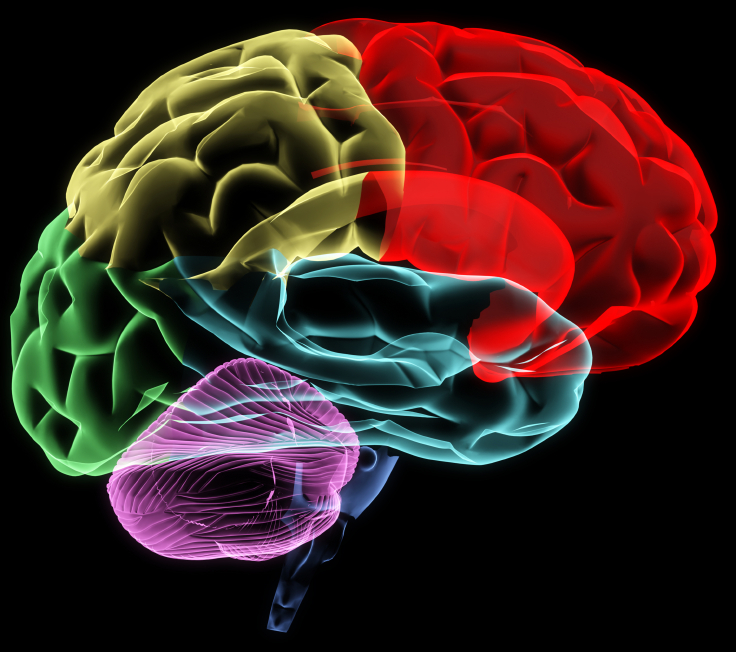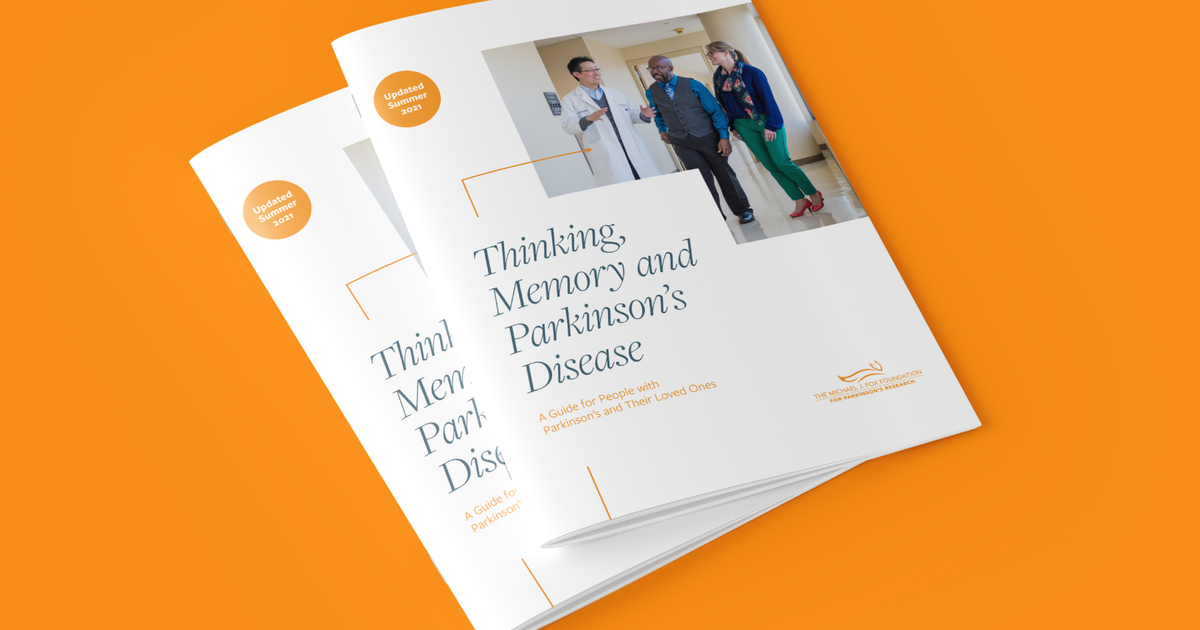Cognition in Parkinson's
Cognitive impairment, disturbance of memory, thinking and/or language abilities, is a non-motor symptom that can be associated with Parkinson’s.
Cognitive disturbances can arise at any time in the course of Parkinson’s disease (PD) and vary widely in severity. Some people don’t experience any problems; others have subtle changes only detectable on formal testing. Still others have issues they describe as mild or somewhat annoying, and some will go through more significant changes that interfere with the ability to perform daily activities.
Cognitive impairment in PD primarily impacts “executive function,” which can lead to difficulty with:
- Multitasking
- Planning and organizing
- Problem solving
Attention, thought processing and word finding also are commonly affected.
Thinking & Memory Guide
Our partners at The Michael J. Fox Foundation have put together this great guide Thinking and Memory – A guide for People with Parkinson’s and Thier loved ones. In this guide, you’ll find:
- Information about how thinking and memory can change over time,
- Tips to boost brain health and manage cognitive symptoms,
- Stories of people living with thinking and memory changes, and
- Research toward new and better treatments and tests.
Managing Mild Cognitive Impairment
When cognitive problems are more than what is expected with normal aging but not enough to significantly interfere with daily activities, they may be due to mild cognitive impairment (MCI). This non-motor symptom occurs in about 30 percent of people with Parkinson’s. Those with MCI may complain of feeling distracted or forgetful, or losing their train of thought in conversation. Individuals in fast-paced jobs might find it more challenging to concentrate or manage multiple projects.
No medications are currently available to treat MCI. Adaptive strategies — making notes, relying on a calendar, keeping objects (such as keys) in the same location to avoid misplacing them — can help. Your doctor may recommend cognitive rehabilitation, in which a therapist teaches memory exercises through a structured program.
Mild cognitive impairment can, but doesn’t always, progress to dementia.

Diagnosing Dementia
Dementia is a decline in memory, thinking and/or language abilities severe enough to interfere with daily routines, job performance or social functions. Dementia associated with Parkinson’s disease (PDD) tends to impact executive skills; visuospatial function (interpreting where objects are in space); and, to a lesser extent, short-term memory. It may also affect motivation, mood and behaviour, and can be associated with visual hallucinations (seeing things that aren’t there) or delusions (firm, false, often paranoid, beliefs). If dementia does develop, it is often in the later stages of Parkinson’s disease.
It can be difficult to differentiate PDD from Alzheimer’s dementia (since there is no specific test to diagnose either), although Alzheimer’s typically causes more pronounced memory loss and confusion, and also lacks the motor symptoms of Parkinson’s (although stiffness and slowness may develop in very late stages). When dementia starts at the same time or within a year of the onset of Parkinson’s motor symptoms, Lewy body dementia (LBD), a form of atypical parkinsonism, may be the cause. LBD is characterized by dementia and the motor symptoms of Parkinson’s as well as fluctuating levels of alertness and visual hallucinations.
Why Cognitive Changes Occur
The exact causes of cognitive impairment and dementia in PD are not fully known but are likely due to a combination of chemical and structural changes. In addition to dopamine, Parkinson’s affects a number of brain chemicals — acetylcholine, norepinephrine and serotonin — that support cognition, attention and mood. Parkinson’s also causes loss of and/or changes in cells in areas of the brain that are responsible for these functions.
Evaluating Cognitive Problems
The first step to evaluating cognitive impairment is letting your doctor know that you’re concerned. It may be normal aging, Parkinson’s or a separate medical condition, but you can’t figure it out unless you bring it up. Doctors will ask about mood disturbances, such as depression or anxiety, and sleep problems, as these can impact memory and require different evaluation and management strategies. They’ll review your prescription and over-the-counter medications to ensure that these aren’t contributing to cognitive problems. (Anticholinergic and pain medications commonly contribute to memory and thinking issues.)
No brain imaging or blood tests can specifically diagnose MCI or PDD, but tests may exclude other conditions, such as thyroid problems or vitamin B12 deficiency, which also can affect cognition. Your doctor may recommend formal detailed memory testing — neuropsychological testing — to determine exactly what problems might be present and establish a baseline for future comparison.
Maintaining Brain Health
While there is no definitive practise or therapy to prevent cognitive impairment, there are actions you can take to promote a healthy brain, including regular exercise and a healthy diet. Some studies suggest that by adopting an “active cognitive lifestyle,” individuals may be able to slow cognitive decline. Practice mentally challenging tasks such as completing crosswords or puzzles, learning to speak a foreign language or playing a new instrument to “work out” your brain. Attend a get-together where you’ll have to remember the names of new acquaintances and make conversation about current events. This has the added benefit of keeping you social.
Ongoing Research in Cognition and Parkinson’s
Researchers are trying to learn more about why cognitive dysfunction occurs in Parkinson’s. At the same time, they are looking for better ways to diagnose, monitor and treat these problems. Several therapies, including aerobic exercise, physical therapy, medications and cognitive rehabilitation programs, are currently being studied to determine if they can treat cognitive problems in Parkinson’s. One drug, which works on the serotonin chemical pathway, is progressing to a Phase II trial, which brings us one step closer to potentially addressing an unmet need in Parkinson’s.


